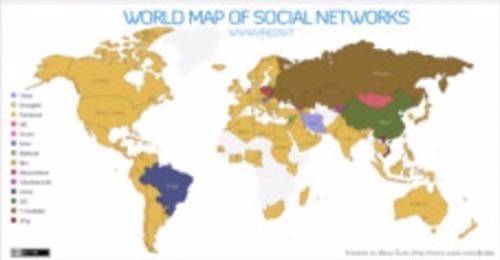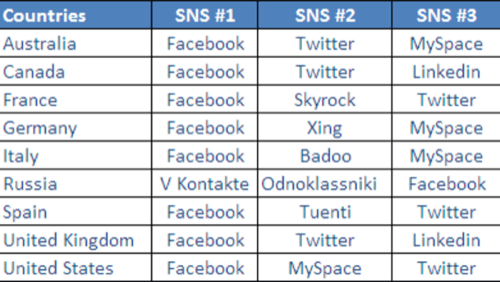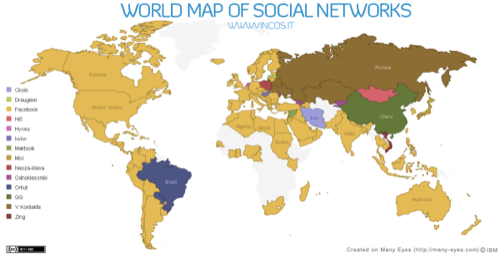A year ago, we covered the global mapping of social networks by Vincenzo Cosenza, a public relations specialists and former Microsoft Italy marketer.

Almost a year to the day later, Cosenza remapped the global use of social networks.
Like his previous effort, Vincenzo’s new maps were based on Alexa and Google Trends for websites traffic data.
Among the trends the earlier exercise identified were Facebook‘s near-colonization of Europe and its 200 millions users; the status of China’s QQ as the largest social network in the world, with 300 million users; and MySpace‘s loss of leadership everywhere except in Guam.
Unsurprisingly, the biggest change is the furtherance of a trend: Facebook’s growth.

+Facebook is eating its local competitors
+Facebook now has almost 500 million users
+In terms of visitors, Facebook is now larger than QQ
+Out of 131 countries surveyed, 111 show Facebook as the leading social network
In-country exceptions to the Facebook rule includes China, where QQ still rules, and seems to still have a few more active users than Facebook and Russia, where the Odnoklassniki and V Kontakte social networks remain the most popular. Orkut is still the most popular in Brazil but is losing significant ground in India, where Alexa, but not Google, gives Facebook the number one position. A scattering of other countries retains its affection for local networks. Some of these, like Syria (Maktoob) and Iran, (Cloob) may have political considerations that effect their choices. The use of non-Latin writing systems may also have a part to play.
Cosenza concurs.
“In my researches (I’m director of Digital PR, an Italian social media agency owned by Hill & Knowlton – WPP) I saw that social networks adoption is driven by cultural, social and political factors. So I strongly agree.”
Other interesting elements to note are the gain by Twitter against MySpace in Australia and Canada and the (slow) growth of LinkedIn.






















